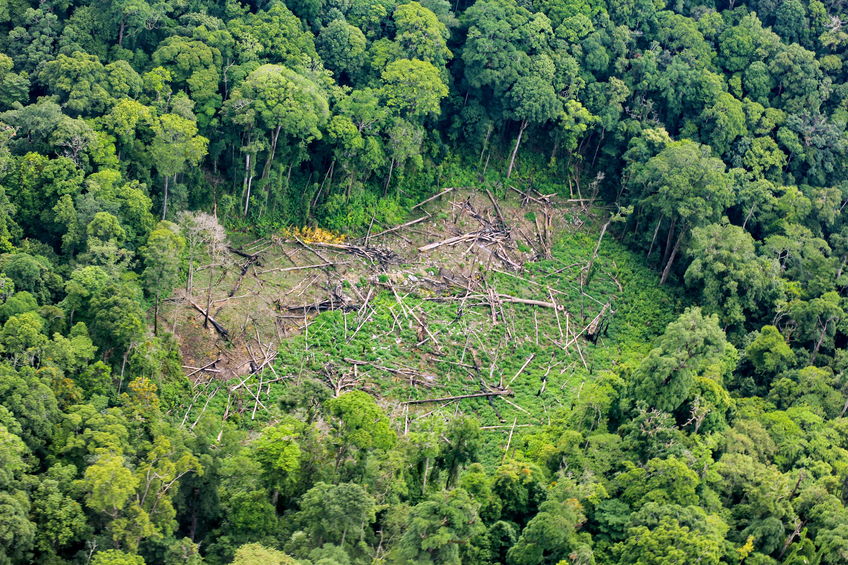Turns out there really is an app for just about everything.
Illegal logging is a growing problem, especially in South America and Africa. To put a stop to it, some are turning to a new app, called ForestLink, so that the local population can alert the authorities to illegal logging activity they are witnessing.
The tool has the potential to be a revolutionary technological advancement in how countries protect their forests.
In the Amazon and the Congo, in particular, governments do not have the resources to track much of the illegal tree cutting that is taking place. This app instead empowers the local community to work to put a stop to it.
According to Mongabay:
“The app was developed by the nonprofit Rainforest Foundation UK (RFUK) and launched in 2015 as a part of its ongoing Real Time Monitoring Initiative. Since its creation, the system has been used in Cameroon, the Democratic Republic of Congo (DRC), Ghana, the Republic of Congo, and Peru. It launched in Liberia in April 2020 and will come to Côte d’Ivoire later this year.
“Illegal timber accounts for 15% to 30% of the timber trade globally, and is worth more than $100 billion, according to Interpol. A significant share of this illegally harvested timber is sold in European markets. Illegal mining operations, particularly in the Amazon, have caused widespread environmental damage.”
From April 2019 to March 2020, 1,400 alerts were sent through the app to authorities about illegal forest activity. These alerts have led to more than 30 missions by authorities to investigate and put a stop to illegal logging or other human rights and corruption violations.
The problem is that despite these increased notifications, government and civil organizations still have trouble enforcing the penalties. The logging has been going on for so long, and is so extensive, it is difficult to get fines to actually stick to certain operators.
RFUK says that where there are defined property rights and land ownership by the local communities, it is much easier to enforce fines and orders to cease illegal operations.
“Land ownership incentivizes people to protect land from invasion. So ultimately, Eisen says, one of RFUK’s major goals is to combine community forest monitoring approaches with this territorial defense angle by advocating for communities’ land rights.
“In Peru, RFUK works with Indigenous communities that have titled lands, but in the Congo Basin, forest communities often lack such land rights. Building these rights requires a long-term commitment to institutional change and, in some cases, building the institutions themselves.
“‘I think the whole way that we view forest monitoring and control needs to shift. It’s pretty external, top-down extractive when it doesn’t need to be,’ Eisen [of RFUK] said. ‘There needs to be equity in forest monitoring and management, and the way to do that is to give people the right to their traditional lands.’”
By combining the principles of clearly defined property rights with technological advancement, the prospect of ensuring that resources harvested legally and safely should only improve over the years.
Read the full story in Mongabay here.
